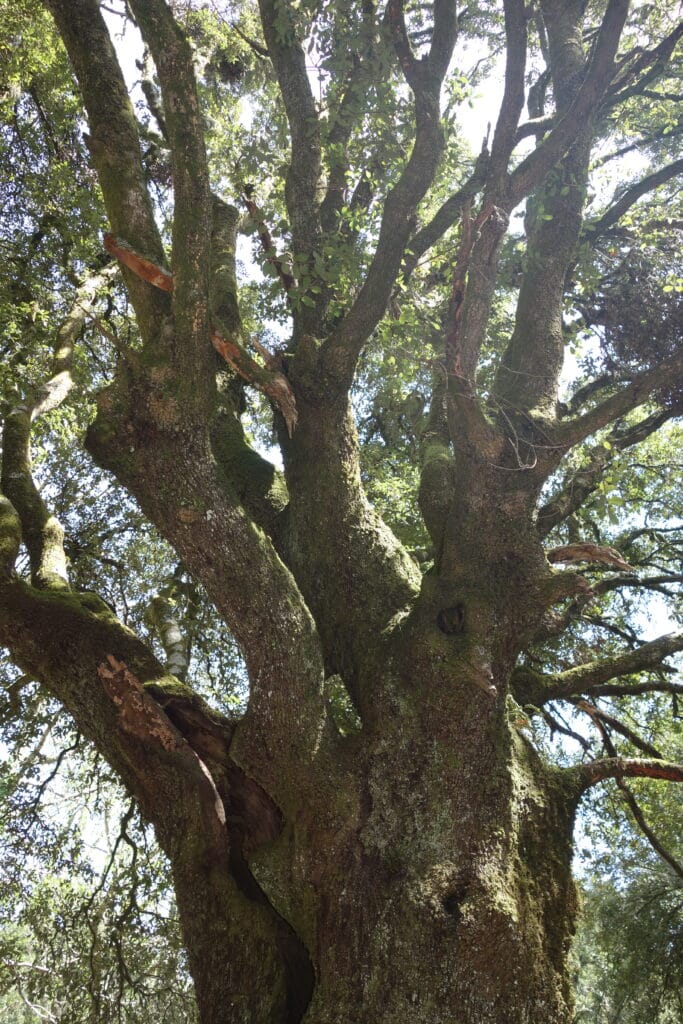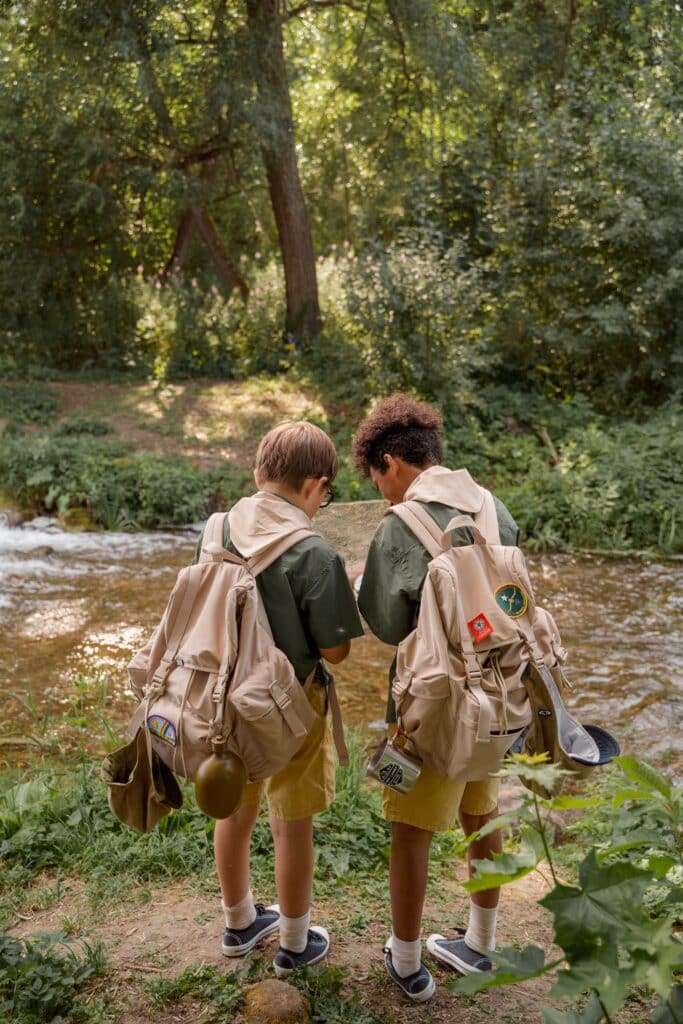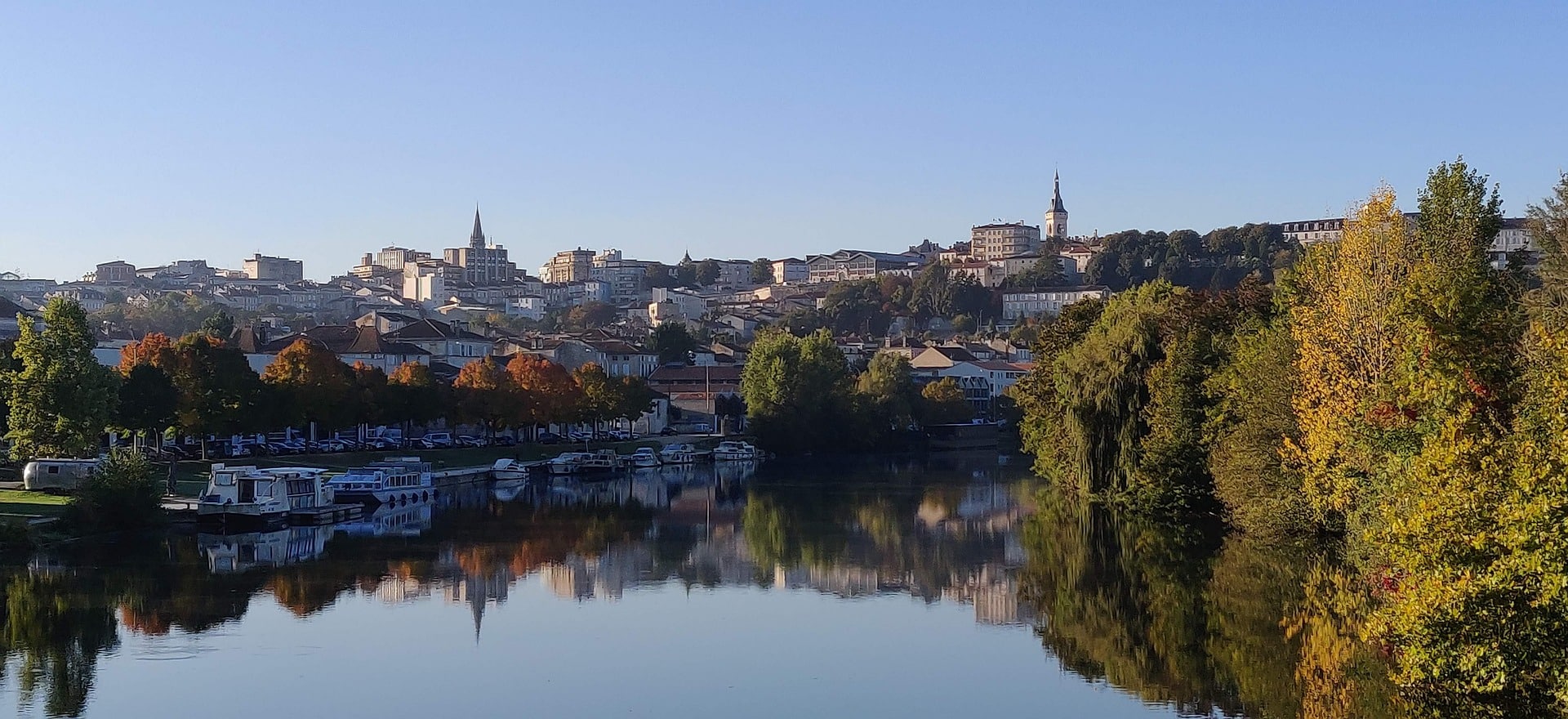In 1961, my father left the army and found a job as an insurance agent in Angoulême. We lived in a high-rise house with a narrow garden adorned by an immense solitary acacia tree, my friend. How sad it will be when a violent storm brings it down and my parents decide to dispose of its remains! My room overlooks the garden, sheltered from the outside world, from which I feel a growing need to protect myself. My shyness grows and I withdraw into myself.
With us, it’s the reign of the unspoken. I sense that there are things “we don’t talk about”. There are others “that don’t get done”. And the Christian virtues taught in catechism soon find their limits. I was about twelve when, as I was leaving Sunday mass, where the theme of the sermon was charity, I spotted an old tramp holding out his beret. My parents pass by without even noticing him. And when I ask my father why he hasn’t given him anything, he gets irritated: “He’d be better off working than begging. And anyway, if I give him something, he’ll go and spend it on booze!”
A violent feeling of injustice rises in me. What hypocrisy! I’ve been taught great theories but nobody puts them into practice. I feel disoriented.
It was at this time that I first heard music that echoed my moods. A friend’s older brother was passionate about rock ‘n’ roll and lent me a few records. That was it. I threw myself on the guitar I’d received six years earlier and which was lying in a corner of my room: it was the beginning of a long passion for music, which would never cease to grow. On the other hand, studies are not far from being the least of my worries.
Geography is the only thing that captivates me: I like to travel by reading textbook maps, and drawing them is a real passion. I make dozens of them for myself outside the curriculum, and fix them to the walls of my bedroom. A map of the world hangs over my bed. How enthusiastically I learn from textbooks how people live on other continents, and how attentively I listen to our teacher talk about the Caucasus, the Andes and the Himalayas! Images flash before my eyes, I hear horses galloping in the Pampas, I smell spices in the bazaars of Istanbul. One day, I’ll discover the world!

My life in Angoulême cannot be exclusively urban. The town sits high above the calm Charente river, on the edge of a vast plain stretching as far as the sea to the west, and a limestone plateau cut by numerous valleys to the east. Apparently, this location has appealed to mankind for millennia, as the many caves in the region are brimming with reminders of our distant ancestors.
We live just a stone’s throw from the archaeological museum where I discovered that Homo sapiens, hardly different from us, lived in the Charente countryside. I don’t really care about the exhibits in the showcase. But from that moment on, when I slip into the caves of the region, I’m gripped by the strong feeling of being linked to the individuals who preceded me there. This feeling will continue to develop over the years. I’m a bit of a prehistoric man myself…
On afternoons off, my mother takes me in her tiny Fiat 500 to a nearby valley. She parks the car by a bridge and, while she sits in the sun and knits serenely, I walk up the tranquil river. The perfectly transparent waters cradle a long, almost continuous hair of aquatic plants that ripple in the current. From time to time, a silver fish darts by. Leaving the water’s edge, I climb slightly to the foot of the cliff. There’s a grotto with a floor covered in white sand. After gathering some dry branches, I light a fire and suddenly find myself far, far away from our misaligned twentieth century. Here I am among the hunter-gatherers who once fed on nature’s bounty, tanned animal skins for clothing and carved flint for tools of all kinds. Now it’s my turn to make myself a bow and arrow, and climb the steep slope to the plateau.

Up there, boxwoods and junipers reign, bushy islands surrounded by a sea of short grass. I’m a Paleolithic hunter who stalks game – but he himself may fall prey to a fearsome saber-toothed tiger. What will he encounter at the next bend in the forest? The antelope he’s chasing or the deadly predator? My heart is pounding in my chest, all my senses are alert, my muscles are tense: who am I going to aim my arrow at? Suddenly, a sound on the grass, a rustle in the foliage – my movement freezes, I freeze my breath… But it’s only a lively red squirrel that climbs a tree and disappears before I can recover from my emotion.

An ancient holm oak with a huge trunk, branches like trunks and twigs like branches stands in the middle of a grove. I embrace it like a brother, then pull myself up by my own bootstraps to make my nest. What security, what well-being in its branches, the opposite of what the company of my fellow creatures usually inspires in me! This welcoming tree gives me its support, offers me its beneficial presence without asking anything in return: with it, I can be totally myself, I don’t have to conform to unacceptable standards. It accepts me and I it. Our relationship is simple!
Every Sunday, the schedule is set. We take the family out for a meal at a restaurant. These are country inns where the food is simple, healthy and hearty, based on “produits du terroir”. My gourmet side finds satisfaction in the pies, wild boar terrines, civets and cheeses. After the meal, we take a long digestive walk in the woods, often on the Dordogne side, where the acidic soil is ideal for chestnut trees. Mushrooms abound. This is the region of Bordeaux ceps, and we return loaded with baskets full of imminent delights: that very evening they’ll be sizzling in the pan, with a little garlic and olive oil. A big bowl of roasted chestnuts, warm and tasty, completes this meal offered by nature.

Discover our online course designed by François Couplan, an internationally recognized expert in ethnobotany with over 50 years’ experience. With 30 modules, 120 courses and high-quality theoretical instruction complemented by field courses, this unique three-year training program will enable you to become a professional in the uses of plants. Accessible to all, it explores in depth the relationship between man and plants, opening up exciting professional opportunities. Join us to deepen your knowledge, explore the plant world and develop a rewarding relationship with nature.

When I was twelve, my mother enrolled me in the Scouts. It was a difficult start, as I was the youngest. On weekend outings, I find it hard to keep up, but don’t expect me to, the newcomers just have to adapt. It’s a tough regime, but I love my patrol. Every Friday evening, we go out into the woods for two days. It’s often on the wild limestone plateaus, our favorite terrain, that we camp among the boxwoods. I’m eagerly learning other aspects of life in the wild: sleeping outdoors, making fires, building shelters, observing animal tracks. We sometimes bivouac on the banks of the Charente, where the dampness of the night means that we end up with soaked comforters. Sometimes it rains for the whole weekend, and we come home on Sunday afternoon as wet as soup, without having slept a wink for two nights. It’s a tough school!
Occasionally, the whole troop gets together for a campout. These are exciting night games, with everyone cutting each other’s tent pegs. Then we lay siege to the fort, whose defenders greet us with stones and iron clubs – and we’re not to be outdone. But one day, the knife-throwing ended prematurely. A misdirected dagger pierced the leather of a boy’s shoe and stuck in his foot. He had to be taken to hospital. That’s the end of our troop, which is disbanded.
I join another one, but the atmosphere is far too mawkish to please me. As my previous adventures have given me confidence, I take it upon myself to make things happen, which doesn’t please our troop leader. He criticizes me for being a thug, for having hair that’s too long and for setting a bad example. In the end, he fires me. In a way, I’m glad to have been able to assert myself in the face of the incomprehension of an authority I despise. I’m sixteen and I’m rebelling.

